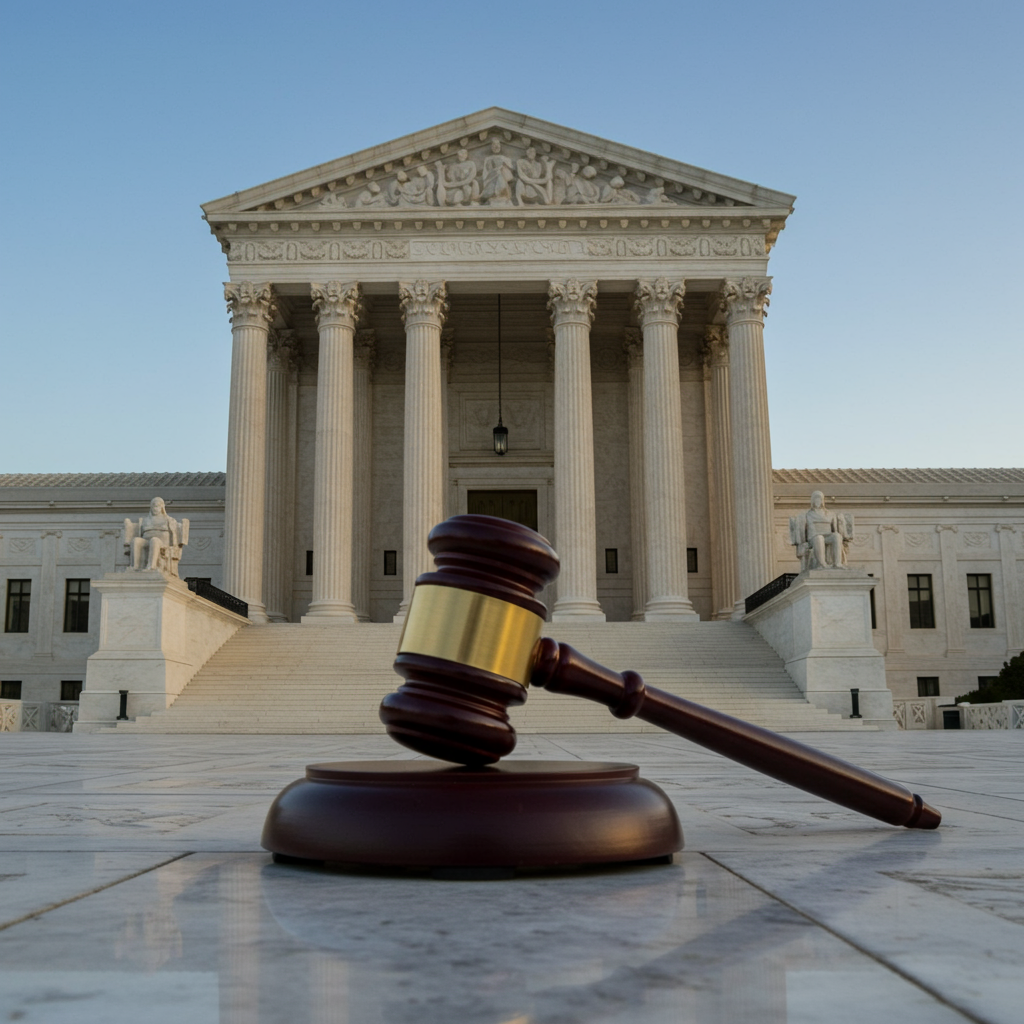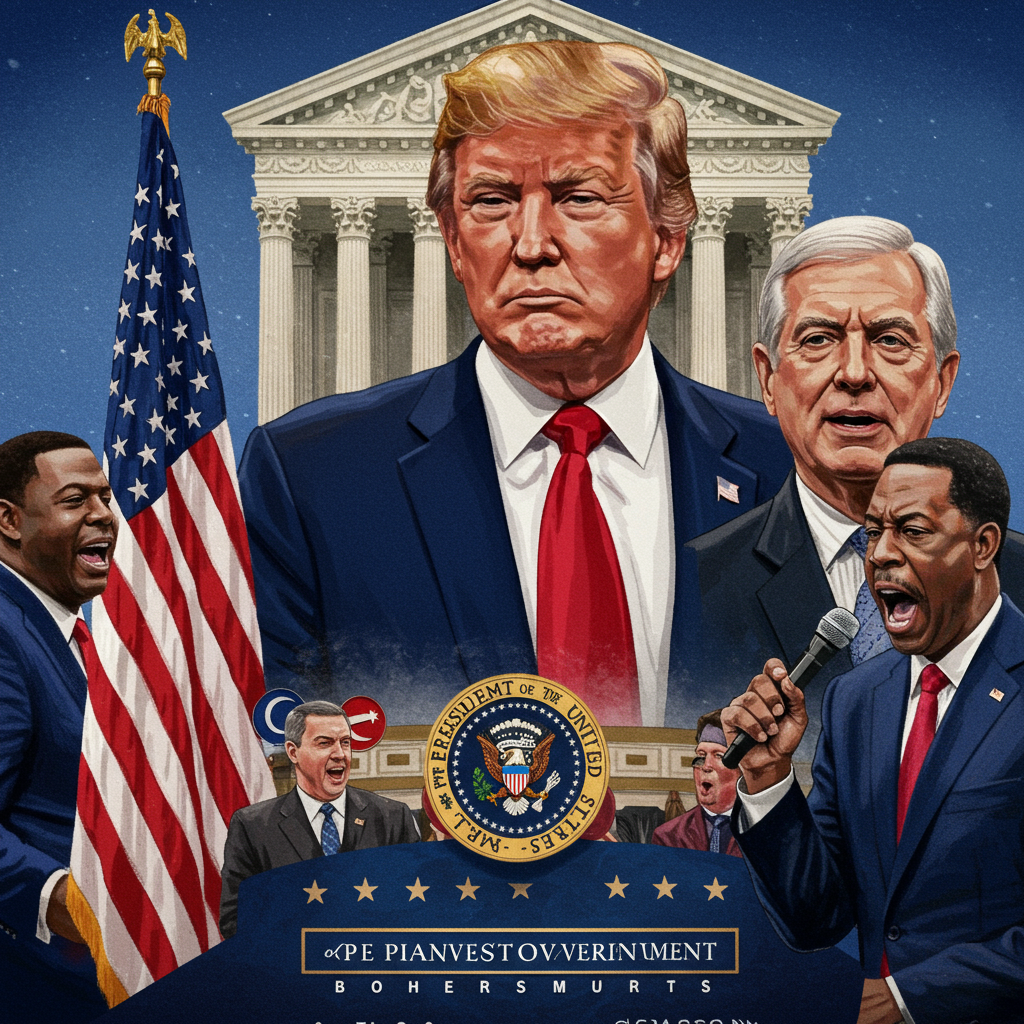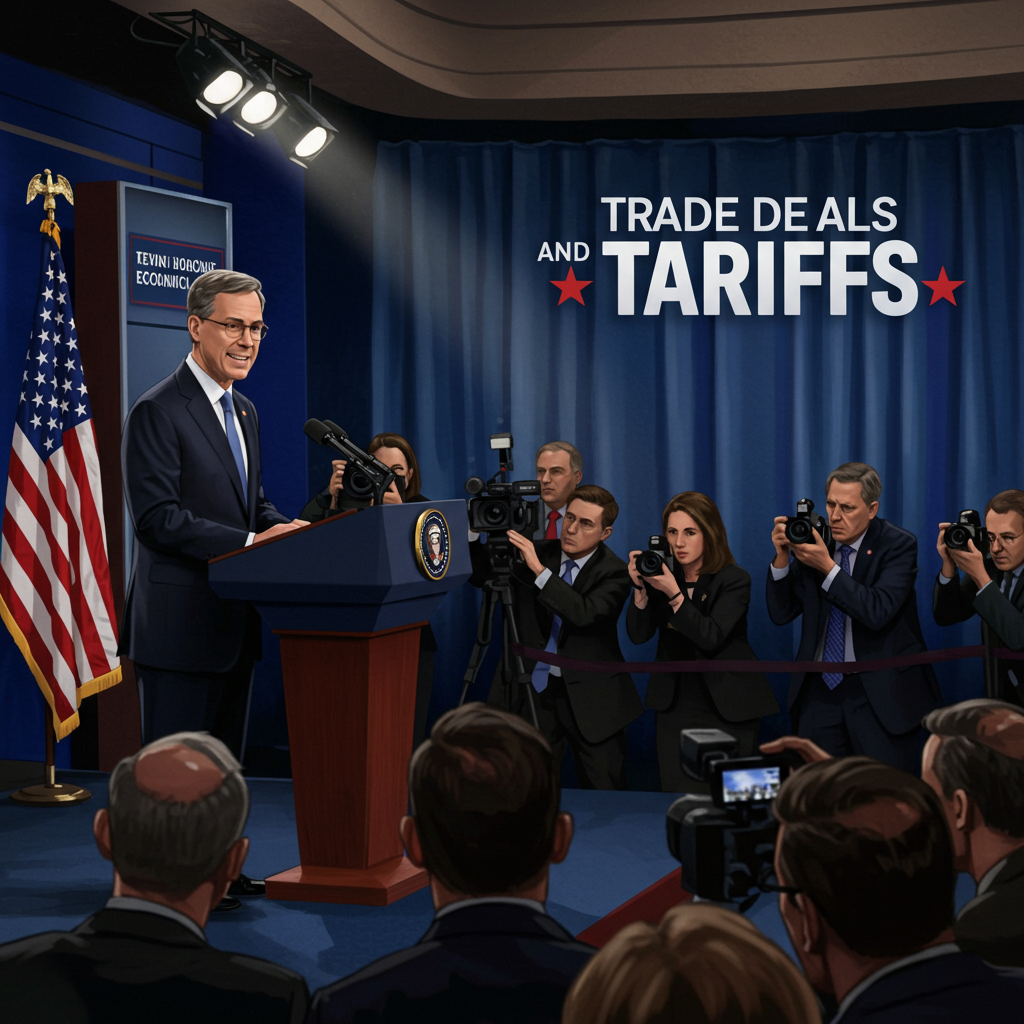Supreme Court Curbs Power of Nationwide Injunctions Amid Birthright Citizenship Battle
In a significant procedural ruling, the U.S. Supreme Court has limited the ability of federal judges to issue “universal” or “nationwide” injunctions that block government policies across the entire country. The 6-3 decision, split along ideological lines, came in a case challenging a Trump administration executive order on birthright citizenship.
While the Court did not decide on the constitutionality of the birthright citizenship policy itself, the ruling represents a victory for the Trump administration, which has long criticized the use of broad injunctions by lower courts to halt its initiatives.
What the Supreme Court Decided
The majority opinion, authored by Justice Amy Coney Barrett, stated that nationwide injunctions “likely exceed the equitable authority that Congress has given to federal courts.”
The Court granted the government’s request for a partial stay, limiting the injunctions issued by lower courts. These injunctions must now be “no broader than necessary to provide complete relief to each plaintiff with standing to sue.”
The decision sends the birthright citizenship cases back to lower courts with instructions to reconsider their sweeping rulings based on this opinion and “principles of equity.” However, the Supreme Court also ordered a 30-day delay before the Trump birthright citizenship order could potentially take effect, allowing time for further legal challenges.
The Birthright Citizenship Controversy
The case originated from challenges to an executive order signed by President Trump. This order declared that children born in the U.S. to parents who entered the country illegally or were on temporary visas are not entitled to automatic citizenship.
This view is widely considered a fringe theory and directly contradicts a long-standing understanding of the 14th Amendment to the Constitution and the 1898 Supreme Court decision United States v. Wong Kim Ark.
The 14th Amendment, enacted after the Civil War to overturn the Dred Scott decision, states: “All persons born or naturalized in the United States, and subject to the jurisdiction thereof, are citizens of the United States.” For over a century, this has been interpreted to grant citizenship automatically to almost anyone born on U.S. soil, a principle known as jus soli (right of the soil). The U.S. is one of approximately 30 countries, mostly in the Americas, that follow this principle.
Lower courts had uniformly ruled against the administration on the merits of the executive order and issued universal injunctions preventing its enforcement anywhere in the country.
Reactions to the Ruling
President Trump praised the decision, calling it a “monumental victory for the Constitution, the separation of powers and the rule of law.” He asserted the ruling would enable his administration to advance immigration policies previously blocked by broad injunctions.
Attorney General Pam Bondi echoed this sentiment but noted the underlying birthright citizenship question’s constitutionality has not yet been definitively decided and would likely reach the Supreme Court on its merits later.
The Court’s three liberal justices — Justices Sonia Sotomayor, Elena Kagan, and Ketanji Brown Jackson — dissented sharply. Justice Sotomayor, writing for the dissenters, argued the government’s push to limit nationwide injunctions “disregards basic principles of equity” and the historical use of injunctive relief benefiting non-parties. She called the ruling a “travesty for the rule of law” and an “open invitation for the government to bypass the Constitution,” potentially leading to a “dangerous patchwork of rights” where citizenship depends on location.
Opponents of the birthright citizenship order, including immigrant rights groups and states that had sued, voiced significant concerns. They argue the ruling creates uncertainty, invites chaos and inequality, and undermines the ability of courts to prevent potentially unconstitutional acts nationwide before harm occurs. They are pursuing a class-action lawsuit aimed at achieving nationwide relief and have filed for temporary restraining orders to prevent implementation of the birthright citizenship policy.
What Happens Next
While the Supreme Court’s ruling limits the scope of injunctions, it does not resolve the core question of whether President Trump’s executive order on birthright citizenship is constitutional. That issue remains open for litigation.
The cases challenging the policy are now back in lower courts, where judges must issue more narrowly tailored orders. Legal experts suggest that challenges might now focus on certifying nationwide class-action lawsuits, which could potentially still lead to relief applying broadly to everyone affected by the policy, not just the named plaintiffs.
Public opinion polls have consistently shown strong opposition to changing the constitutional interpretation of birthright citizenship. An AP-NORC poll from January found only about 3 in 10 U.S. adults favored altering the Constitution to deny automatic citizenship based on parents’ status.
The ultimate fate of the Trump administration’s birthright citizenship policy now rests on future legal battles and the tailored rulings issued by the lower federal courts.
Additional Supreme Court decisions issued on the same day included rulings on parents opting children out of classes with LGBTQ book characters, upholding a key Affordable Care Act provision on preventive care, siding with a Texas age verification law for porn sites, maintaining the Universal Service Fund subsidy, and postponing a Louisiana redistricting case.




